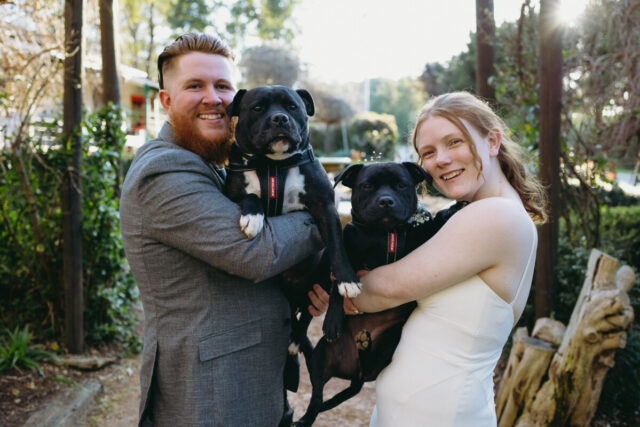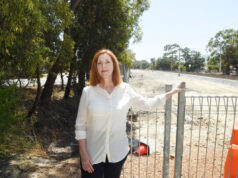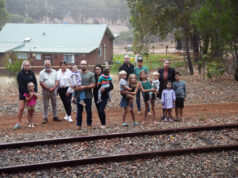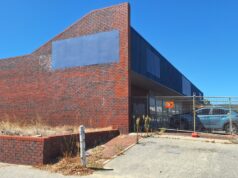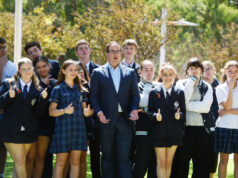Emma Ferguson knows all too well about the dangers of Melanoma.
The 26-year-old, who is battling with it, will be walking in the Melanoma March in March at Taylor Reserve in Victoria Park to raise awareness about the seriousness of the disease.
Emma was just 14 when she was first diagnosed with Stage III melanoma on her left forearm which resulted in surgery and required some lymph nodes to be also be removed.
In 2021 a few months after buying her first home with her fiancé she found out she had Stage IV melanoma on her left lung.
Again, this required surgery and she underwent immunotherapy along with clinical trial.
Emma is now back, she got married and is continuing to be monitored.
Emma is marching with her family to raise awareness about melanoma and the need for people to get their skin checked if they see a change.
Emma said her response to immunotherapy has been positive but for others this is not the case so she is passionate about raising much-needed for funds for on-going research into treatments.
Melanoma Institute Australia’s (MIA) co-medical directors and 2024 Australians of the Year, Professor Georgina Long and Professor Richard Scolyer, are urging Australians to join the national Melanoma March campaign in Victoria Park on Sunday March 24 to raise research funds and add their voices to calls to stop the glamourisation of tanning.
Professors Long and Scolyer were made Australians of the Year, for revolutionising melanoma treatment and their advocacy for sun-safe behaviour.
During their emotional acceptance speech, they called for urgent action to stop the glamourisation of tanning.
“There is nothing healthy about a tan. Nothing. Our bronzed Aussie culture is actually killing us,” Professor Long said.
“So, we call on advertisers, and social media influencers to stop glamourising tanning, or using it to sell or entertain. And our fellow Australians – when you see it, call it out, and demand change.”
“Imagine the outcry if smoking was still glamourised like this,” Professor Scolyer said.
“We must elevate sun-safety to equal status as other life-saving safety measures like seatbelts and helmets.”
Organised by volunteer committees impacted by melanoma, the Melanoma March events raise vital funds for melanoma research, which will also impact other cancers, and provide an opportunity for patients and families to come together to support each other and remember those lost to the disease.
This year’s campaign also aims to shine a spotlight on the dangers of tanning and the need for greater investment in national prevention strategies.
Australia has the highest melanoma rates in the world, with one person diagnosed every 30 minutes with melanoma and one person dies from the disease every six hours.
It is the most common type of cancer affecting 20–39-year-old Australians.
Professors Long and Scolyer are asking their fellow Aussies to amplify their calls for change by joining Melanoma Institute Australia’s national Melanoma March campaign.
MIA’s Melanoma March in Perth will be held on Sunday, 24 March 24 at Taylor Reserve in Victoria Park.
Those who can’t attend an event can still support the campaign by getting active and hosting a March Your Way activity with friends or individually.
To register or donate to Melanoma March, go to www.melanomamarch.org.au.


